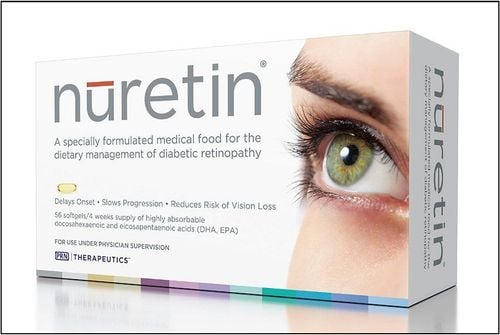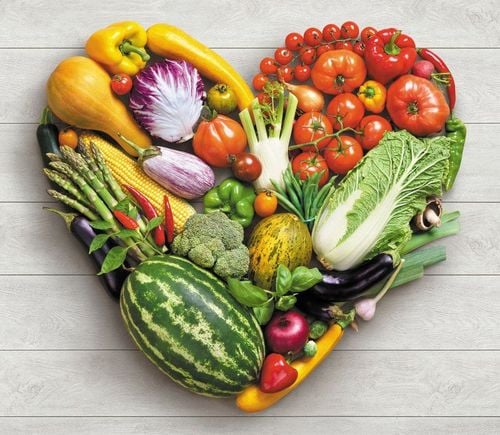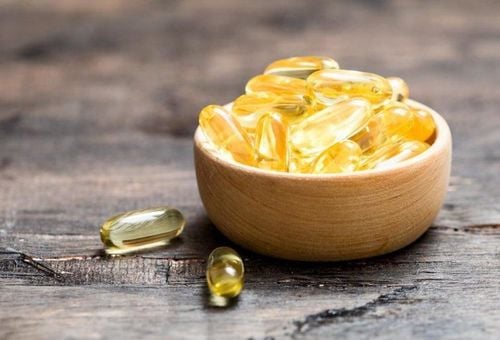This is an automatically translated article.
Cold pressing is a popular way to make olive oil without the use of heat or chemicals. This process involves grinding the olives into a paste, then using a mechanical press to separate the oil from the pulp. According to European food standards, olive oil processing temperatures cannot exceed 81°F (27°C). Cold pressing can help olive oil retain its nutritional value, as nutrients and beneficial plant compounds can be broken down under high heat.
1. Ensure nutrients in olive oil
Like almost all other fats, cold pressed olive oil is high in calories. However, the main type of fat found in olive oil is unsaturated fat – a type of healthy fat.
Compared with a diet high in saturated fat, people who consume unsaturated fats have a lower risk of heart disease, type 2 diabetes, cancer, and other chronic diseases.
Olive oil also contains high levels of vitamins E and K. Vitamin E is an antioxidant that helps support immune function, while vitamin K plays a key role in blood clotting and bone health development.
One 15ml tablespoon of cold olive oil can provide:
Calories: 119 Total fat: 13.5g Saturated fat: 2g Monounsaturated fat: 10g Polyunsaturated fat: 1.5g Vitamin E : 12.9% Daily Value (DV) Vitamin K: 6.8% DV Cold-pressed olive oil also contains at least 30 beneficial plant compounds, many of which are potent antioxidants with anti-inflammatory effects
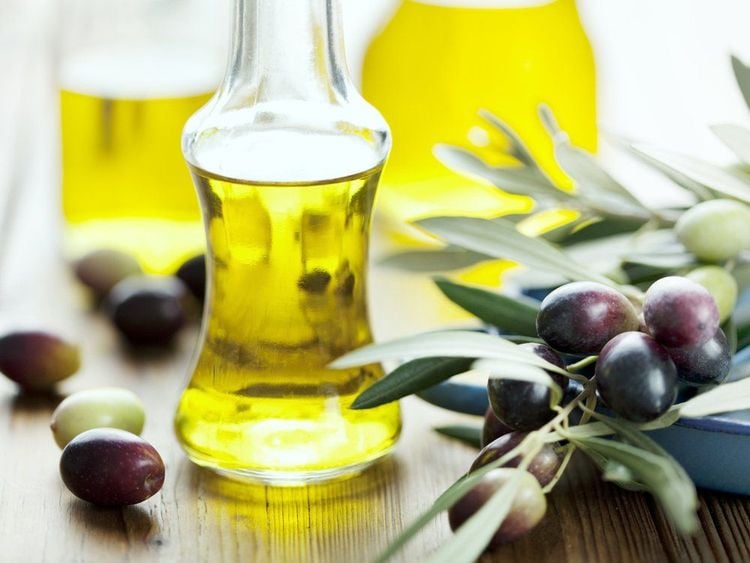
Dầu ô liu ép lạnh chứa nhiều chất dinh dưỡng tốt cho sức khỏe người dùng
2. Olive oil is rich in good fats
The United States Department of Agriculture (USDA) recommends that consumers consume between 20% and 35% of calories from fat each day, mostly of the unsaturated variety. Cold pressed olive oil is composed of nearly all fats, with 71% coming from an unsaturated fat called oleic acid. Studies show that oleic acid and other unsaturated fats can help lower LDL (bad) cholesterol when used in place of saturated fat.
Furthermore, 11% of the fat in cold pressed olive oil comes from omega-6 and omega-3 fatty acids. These two unsaturated fats have health-supportive effects such as regulating blood pressure, blood clotting and balancing the immune system response.
Although olive oil contains 2 grams of saturated fat in a 15ml tablespoon, this is still within the range of 13 to 22g recommended by most health authorities based on a 2,000-diet diet. standard calories.
3. Olive oil contains antioxidants
Cold pressed olive oil can retain more antioxidants than lower grade olive oil because it is not heat treated. Antioxidants protect the body from unstable molecules called free radicals, helping the body ward off chronic diseases like heart disease, diabetes, and cancer. Per 15 ml tablespoon, olive oil contains 12.9% DV of vitamin E - an essential nutrient and potent antioxidant.
Cold olive oil is also rich in plant compounds such as oleuropein and hydroxytyrosol, which have demonstrated powerful antioxidant properties in animal and test-tube environments.
4. Anti-inflammatory ability
Persistent low-grade inflammation is thought to be the cause of many dangerous diseases, including heart disease, diabetes, cancer, arthritis and Alzheimer's disease. Studies show that olive oil can help reduce inflammation due to its high concentration of healthy fats, antioxidants and compounds like oleocanthal. Oleocanthal is a natural anti-inflammatory. Test-tube studies have shown that it works similarly to ibuprofen, a medically used anti-inflammatory drug, although further human studies are needed to confirm this result.

Khả năng chống viêm của người dùng tăng lên khi sử dụng dầu ô liu lạnh
5. Reduces Chances of Heart Disease
Heart disease is the leading cause of death in both men and women worldwide, including more than 17 million deaths each year. Many studies reveal that replacing foods high in saturated fat with olive oil can help lower cholesterol levels and high LDL (bad) blood pressure - two major risk factors for heart disease.
A study of 84,000 women found that replacing 5% of saturated fat with foods high in monounsaturated fats, including olive oil, reduced the risk of heart disease by 15%.
6. Boosts brain health
Dietary supplements with cold pressed olive oil have been shown to support brain health. The MIND Diet is an example that recommends consumers cook with olive oil.
In population studies, individuals following the MIND diet show a slower decline in memory with aging and age, as well as after stroke. A 4.5-year study in 923 people found that the incidence of Alzheimer's disease was reduced by 53% in those who strictly followed the MIND diet.
7. Some other health benefits
Although the amount of research is limited, cold-pressed olive oil may offer other potential health benefits. Includes:
Reduced risk of type 2 diabetes. Human studies have shown that diets supplemented with olive oil - up to 1.5 tablespoons (20 ml) per day have a 16% lower risk of developing type 2 diabetes. Improve blood sugar. In one small study, people who took 20 mg of concentrated oleuropein, a compound in olive oil, showed 14% lower blood sugar after a meal than those who didn't. Reduce constipation. According to some small studies, taking as little as 1 teaspoon 5ml of olive oil daily can treat constipation and prevent osteoarthritis. Animal research suggests that olive oil and its compounds may fight osteoarthritis by preventing damage to cartilage, the protective lining in joints.
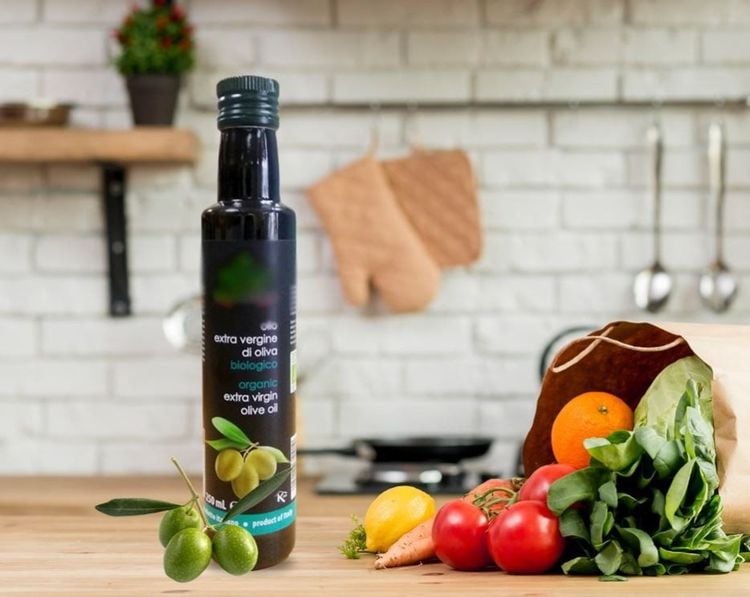
Dầu ô liu lạnh cần được sử dụng đúng cách khi chế biến trong bữa ăn hàng ngày
8. Beneficial for hair, nails and skin
Although there isn't much scientific evidence to support the topical application of olive oil, it is a common ingredient in many soaps, shampoos, and shower gels.
Some popular applications include:
Hair care. Using 1 tablespoon (153030 ml) of olive oil can treat split ends or gently massage into your scalp to relieve dryness. Moisturizing. To hydrate skin, use a thin layer of olive oil after showering to apply to skin or mix a small amount of oil into your regular lotion before use. Regulate the epidermis. Massage a drop of olive oil into each fingertip to treat chapped, cracked, or dry cuticles. Consumers should be aware of using extra virgin olive oil to avoid irritation due to impurities in some unsecured oils.
9. Easy to add to the menu
Cold pressed olive oil is not only a great cooking oil for sautéing, roasting and baking, but also a staple in salads and sauces. Some ways to use olive oil in cooking instead of other fats:
When cooking, replace butter, lard with cold pressed olive oil When making salads, instead of buying pre-mixed cream at In supermarkets, olive oil can be used as a dressing. Choose olive oil-based sauces such as pesto over cream or cheese. Instead of buttering bread, dip cakes in olive oil. Cold pressed and sprinkled with spices Customers can directly go to Vinmec Health system nationwide to visit or contact the hotline here for support.
Reference article Healthline.com





